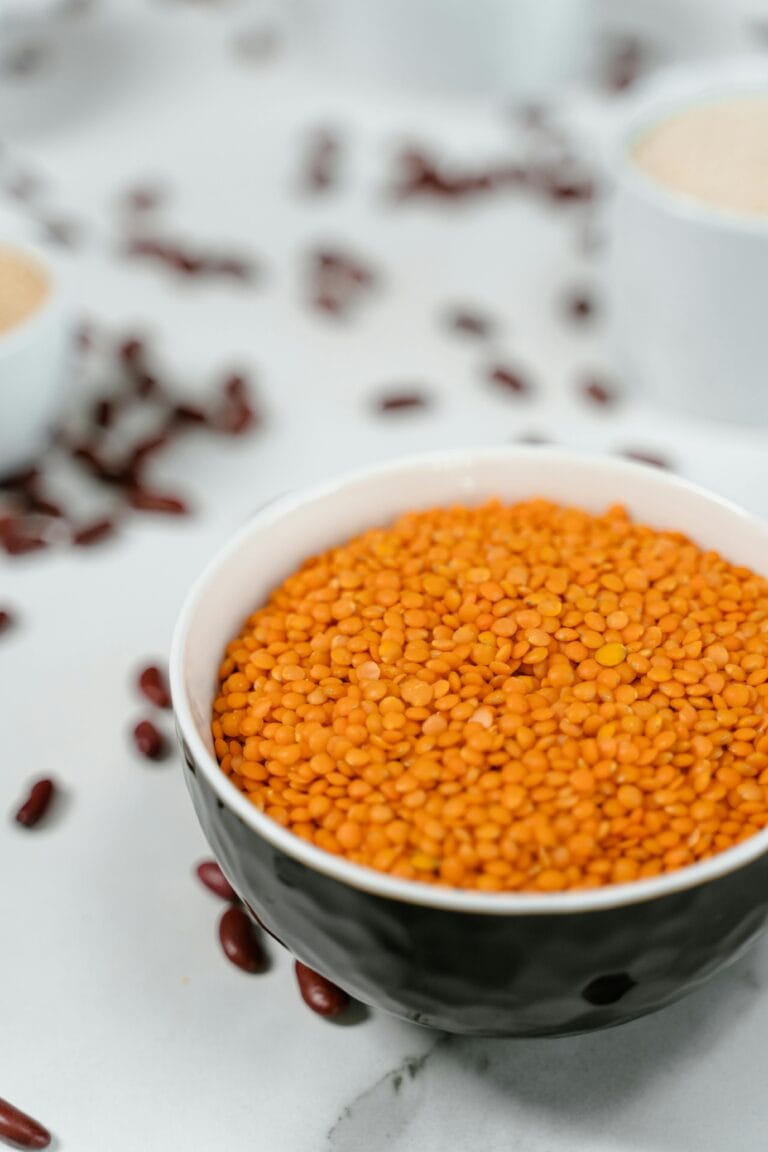Nutritional Profile of Broccoli
Broccoli is widely recognized as a nutrient powerhouse, offering a wealth of vitamins and minerals that contribute significantly to overall health. This cruciferous vegetable stands out for its remarkable nutritional profile, making it an essential addition to a balanced diet. One of the most notable components of broccoli is its high content of Vitamin C. This vitamin is crucial for maintaining a robust immune system, promoting wound healing, and aiding in the absorption of iron. Furthermore, Vitamin C acts as an antioxidant, protecting the body’s cells from damage.
Another important nutrient found in boiled broccoli is Vitamin K, which plays a vital role in blood clotting and bone health. Adequate intake of Vitamin K is essential for maintaining strong bones and reducing the risk of fractures. Alongside these vitamins, broccoli is an excellent source of folate, a B-vitamin that supports cellular function and is particularly vital during periods of rapid growth, such as pregnancy. Folate is important for DNA synthesis and repair, making it a critical nutrient for overall health.
In addition to its impressive vitamin content, broccoli also provides essential minerals such as potassium and calcium. Potassium is necessary for maintaining proper fluid balance and supporting normal muscle function, while calcium is vital for bone health and plays a role in nerve transmission. The presence of dietary fiber in boiled broccoli should not be overlooked, as it aids in digestion, helps maintain stable blood sugar levels, and contributes to a feeling of fullness. Collectively, these nutrients showcase the health benefits of incorporating broccoli into one’s diet. By consuming broccoli regularly, individuals can harness the advantages of these vital vitamins and minerals to support their overall health and wellness.
Daily Uses of Broccoli: Incorporating This Superfood into Your Diet

Broccoli is not only a nutrient powerhouse but also a versatile ingredient that can be seamlessly integrated into various meals throughout the day. Incorporating boiled broccoli into a balanced diet can enhance your intake of essential vitamins while keeping calories in check. In addition to boiling, there are numerous cooking methods to enjoy this superfood.
Steaming is a popular alternative to preserve the vibrant color and nutritional value of broccoli. This method allows the broccoli to retain most of its vitamins, particularly vitamin C, while ensuring a tender yet crisp texture. Pair steamed broccoli with lemon juice and olive oil for a simple side dish or add it to grain bowls for added flavor and nutrients.
Roasting broccoli brings out its natural sweetness and adds a delightful crunch. Toss florets with olive oil, salt, and pepper, and roast in the oven until golden brown. Roasted broccoli can serve as an excellent accompaniment to meats or as a topping for pizzas, providing a delicious way to enhance your meals.
Stir-frying is another effective way to combine this nutritious vegetable with a variety of other ingredients. By quickly cooking broccoli with vegetables, proteins like chicken or tofu, and a savory sauce, you create a nutritious and colorful dish full of flavor. This method also allows for the inclusion of other vibrant vegetables, maximizing your overall nutrient intake.
In terms of raw consumption, broccoli can be enjoyed in salads, where it offers a satisfying crunch along with a range of vitamins. Adding it to a mixed green salad with nuts and a light vinaigrette can elevate the dish while keeping it healthy. For soups, incorporating boiled or steamed broccoli adds not just nutrition, but also a rich texture that can make your dish more fulfilling.
When selecting broccoli, look for vibrant green heads with tightly packed florets. Store it unwashed in the refrigerator, wrapped in a damp cloth to maintain freshness. Preparing broccoli through methods such as boiling, steaming, or roasting brings out its best flavors and health benefits, making it an indispensable component of a wholesome diet.
The Science Behind Boiling Broccoli: Benefits and Best Practices

Broccoli is renowned for its rich array of vitamins and nutrients, making it a popular choice among health enthusiasts. When considering cooking methods for this cruciferous vegetable, boiling is a prevalent technique with specific benefits and best practices that enhance the overall eating experience. One of the primary advantages of boiling broccoli is its ability to make the vegetable tender while concentrating its flavors. This cooking method can enhance the absorption of certain nutrients, particularly beneficial in aiding digestion.
However, it is crucial to consider the impact of boiling on the nutritional profile of broccoli. This vegetable contains various water-soluble vitamins, such as vitamin C and some B vitamins, which can leach into the boiling water. To mitigate this nutrient loss, it is advisable to use minimal boiling times, typically ranging from 3 to 5 minutes. Following this guideline can preserve a significant portion of the vitamins while still yielding a tender and palatable result.
Moreover, incorporating salt into the boiling water can improve the flavor profile of broccoli, enhancing its natural taste without adding extra calories. Best practices for boiling broccoli also include utilizing a pot with a lid, which can help maintain the steam needed for even cooking. For those concerned about nutrient retention, consider using the boiling water for soups or sauces, thereby reclaiming some of the nutrients that would otherwise be discarded.
In summary, reducing boiling time and adhering to best practices serves not only to maximize the vitamins in broccoli but also to create an enjoyable culinary experience. Embracing boiling as a cooking method can result in a healthful addition to meals, making it an ideal way to enjoy this nutritional powerhouse.
Health Benefits of Broccoli: From Head to Toe

Broccoli is not merely a green vegetable; it is a nutritional powerhouse that offers a plethora of health benefits when incorporated into a regular diet. Rich in vitamins and minerals, particularly vitamins C, K, and A, broccoli plays a critical role in enhancing overall health. Its low-calorie count makes it an excellent food choice for those looking to maintain or lose weight while staying nourished.
One of the most compelling benefits of broccoli lies in its antioxidant properties. Antioxidants help neutralize free radicals in the body, which are damaging compounds that can lead to chronic diseases, including various forms of cancer. Several studies have suggested that a diet rich in broccoli and other cruciferous vegetables may lower the risk of developing certain cancers, such as breast and prostate cancer. The presence of sulforaphane, a compound found in broccoli, has been linked to anti-cancer effects, providing a strong incentive to include this vegetable regularly.
Moreover, broccoli supports cardiovascular health. The nutrients contained in this green vegetable help in lowering cholesterol levels, while also promoting healthy blood vessels. Such effects are crucial in reducing the risk of heart disease. Additionally, broccoli is high in fiber, which is not only beneficial for digestion but also aids in maintaining healthy blood sugar levels, thereby reducing the likelihood of type 2 diabetes.
In terms of anti-inflammatory effects, broccoli contains various bioactive compounds that can help mitigate inflammation in the body. This can be particularly advantageous for individuals suffering from chronic inflammatory disorders. The consumption of boiled broccoli, in particular, retains its nutrient profile, making it an ideal food choice. Overall, integrating broccoli into one’s diet can yield multiple health benefits, making it a worthy addition to daily meals.







